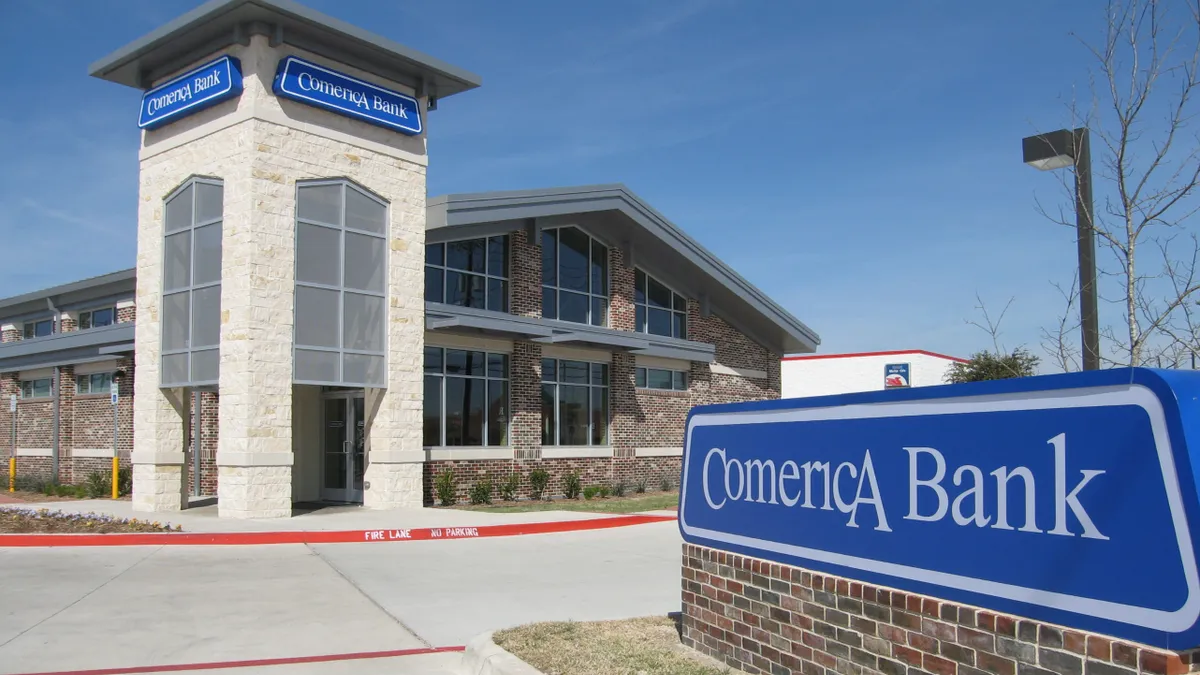Starling Bank CEO Anne Boden is using her ears to help the U.K.-based digital startup weather the coronavirus crisis. In some cases, that means putting on hold some long-term plans for the bank while staying in tune with customers' immediate needs.
"You have to listen to what's going on around you," Boden said at the AltFi Digital Summit last week. "We’ve embraced the new normal."
That new normal includes a doubling of Starling's customer base since the pandemic began, Boden told the summit, without further explanation. Some of the spike may be attributed to a swell in account openings from sole traders aiming to benefit from the Bounce Back Loan Scheme (BBLS), a British government-backed coronavirus relief program.
The bank lent out £90 million ($110.1 million) within the first day and a half of accepting applications for the program, according to Business Insider. And the resulting buzz may have spurred some sole traders to think opening a Starling account would be the most expeditious route to relief.
Starling drew heat last week for its decision to stop accepting new sole trader business accounts so it could focus on existing ones. Citing "record demand," Boden tweeted the bank would resume taking new sole trader accounts June 1.
But at the same time, Starling was launching new opportunities, partnering with Funding Circle to offer £300 million ($367 million) in small-business loans tied to another government-backed pandemic relief platform, the Coronavirus Business Interruption Loan Scheme.
Starling came under fire a second time last week for overstating its success rate with BBLS loans. Starling tweeted May 15 it had processed 99.7% of the program’s applications, with customers receiving funding in an average of 27 hours. However, Boden amended that Sunday, saying the bank had processed 75% and that 16% had been declined.
The rejections led some customers to complain on Twitter, demanding an explanation. Some customers likely were denied because they failed the necessary fraud checks to receive the loans, sources told AltFi.
Starling isn't the only nontraditional lender to pivot toward funding pandemic relief only to find a crush of demand. In the U.S., Kabbage paused lending and cut credit lines to some small businesses to adjust for the Small Business Administration's Paycheck Protection Program.
For all its focus on small-business lending, Starling hasn’t forgotten its retail customers. On that front, the bank launched two new products in April: mobile check deposits and a connected card allowing trusted contacts to pay for goods on behalf of self-isolating customers. The connected card product attracted the interest of 10,000 customers within days of its launch, Boden said. Customers are protected from fraud through the assignment of personal identification numbers, a spending limit of £200 ($245) and acceptance only at physical retail stores.
"What crises normally do is take a trend and accelerate it," Boden said. "I think we’re going to see the end of the branch and it could push us away from cash toward contactless and digital wallets."
Starling has maintained a commitment to employees, too. Despite reports in March that the bank furloughed 41 workers — newer employees who hadn’t completed their training and, thus, couldn’t work from home — Starling reversed course, developing a way to train workers remotely.
As a result, the bank didn't need to use a U.K. government grant program for companies that furloughed employees because of the pandemic. And Starling has continued to hire throughout the crisis, especially in software engineering, the bank said.
The coronavirus has forced Starling to postpone some of its long-term growth plans, including its ambition to obtain a European banking license, Boden said. Plans for an initial public offering are still in the cards, but they are also delayed, she said.
"If you look at the numbers, we’re probably going to be roughly where we were planning to be, but six to nine months out," she said. "It’s probably still going to be an IPO for us eventually, but I think being realistic, it’s not going to be next year."
Despite opportunities to build customer relationships throughout the pandemic, digital banking brands still face pressure, said Aurelie L'Hostis, senior analyst at Forrester Research.
"Challenger banks will need to fight to survive," she said. "A handful of digital banks — those that secured funding recently or had large numbers of customers already — will manage to weather the pandemic crisis until the third quarter of the year and then make it through a 12- to 18-month recovery period."
One thing Boden said she wouldn’t do is cash out.
"I didn't start a bank to sell out to the big boys," she said.



















